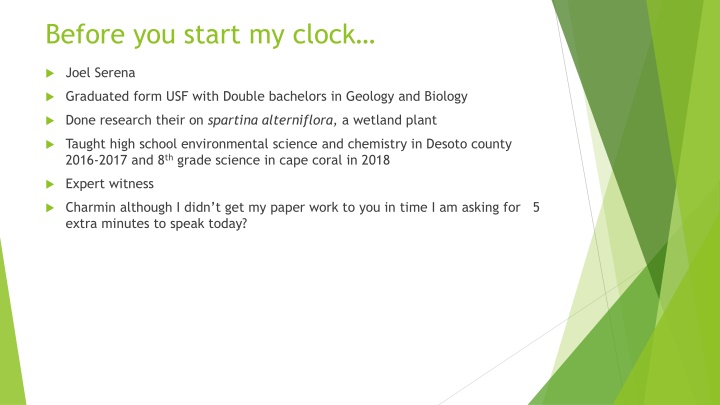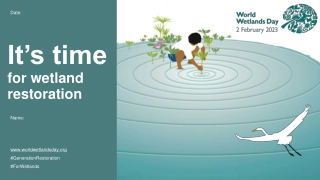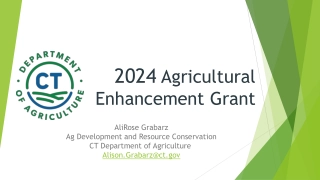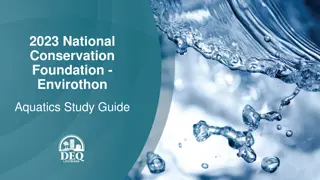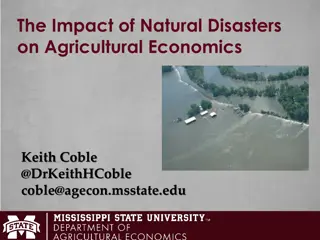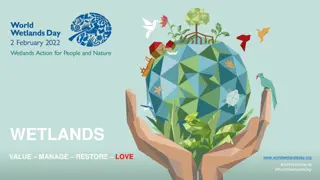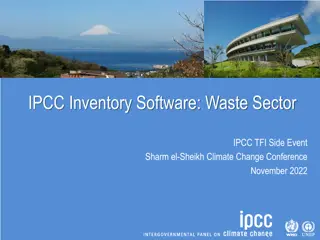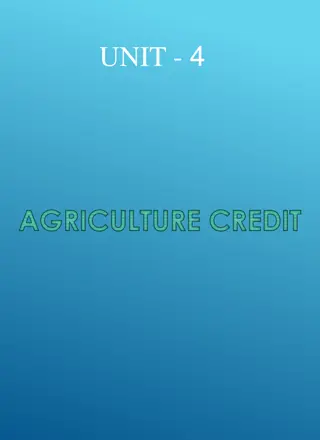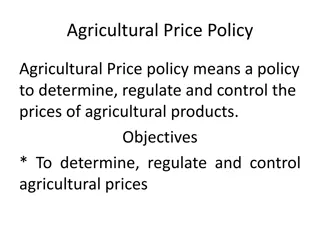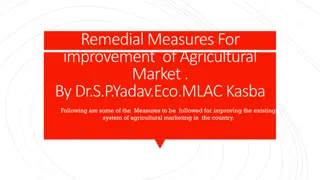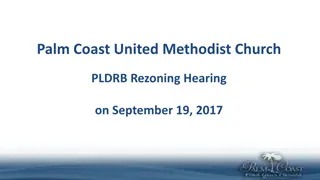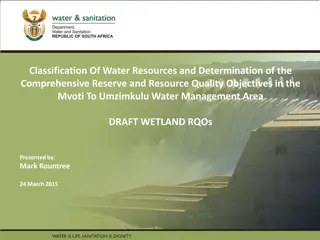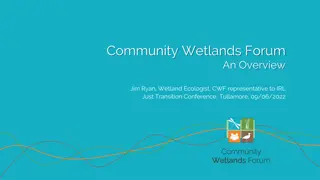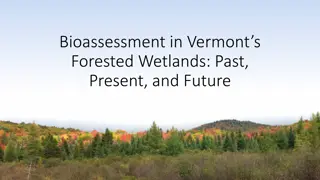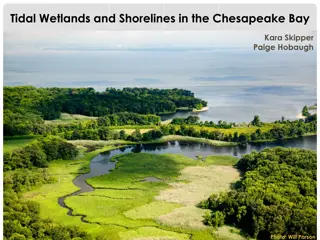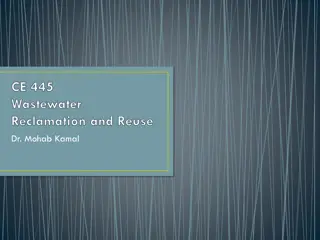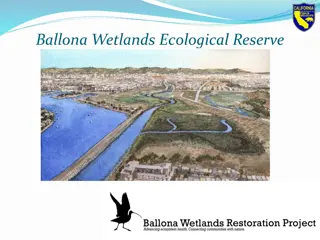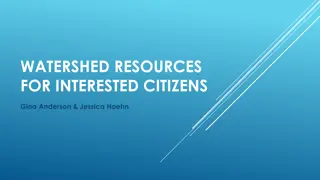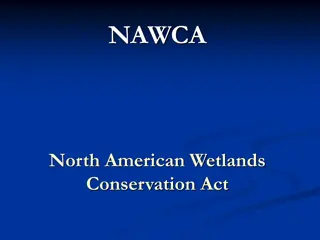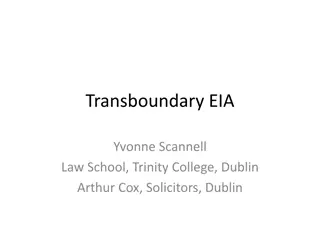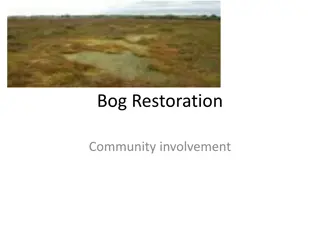Protecting Wetlands: A Call to Deny Agricultural Rezoning
Joel Serena, a Geology and Biology graduate, urges the board to deny agricultural land rezoning based on environmental factors. Through images and compelling arguments, the detrimental effects of mining on wetlands like Horse Creek in Florida are highlighted. The plea is to safeguard existing sustainable agricultural practices that support clean air, water, crops, cattle, and vital ecosystems like wetlands.
Download Presentation

Please find below an Image/Link to download the presentation.
The content on the website is provided AS IS for your information and personal use only. It may not be sold, licensed, or shared on other websites without obtaining consent from the author.If you encounter any issues during the download, it is possible that the publisher has removed the file from their server.
You are allowed to download the files provided on this website for personal or commercial use, subject to the condition that they are used lawfully. All files are the property of their respective owners.
The content on the website is provided AS IS for your information and personal use only. It may not be sold, licensed, or shared on other websites without obtaining consent from the author.
E N D
Presentation Transcript
Before you start my clock Joel Serena Graduated form USF with Double bachelors in Geology and Biology Done research their on spartina alterniflora, a wetland plant Taught high school environmental science and chemistry in Desoto county 2016-2017 and 8thgrade science in cape coral in 2018 Expert witness Charmin although I didn t get my paper work to you in time I am asking for 5 extra minutes to speak today?
Consequences of Rezoning Agricultural Land Joel Serena
Land that would otherwise look like this Horse Creek, Arcadia Florida
And this. Horse Creek, Arcadia Florida
And this Horse Creek, Arcadia Florida
Reasons why you should NOT rezone I am requesting that the board DENY the rezoning based on factors 2,9,7,11,14,15
Reasons why you should NOT rezone Factor 2- The existing land use pattern Sustainable Agricultural land 1. Uses clean air, clean water, produces clean air, clean water, crops, cattle, protects underwater aquifers, and helps sustain pristine WETLANDS. 2. Wetland are among the most important ecosystems on the earth, (Mitsch and Gosselink 2007). They deserve protection not destruction by mosiac.
Reasons why you should NOT rezone Factor 2- The existing land use pattern The existing land use allows- Horse Creek, peace river, and surrounding tributaries to remain unaffected in its natural state in terms of development Allows wildlife to exist on the parcel and to pass through the parcel undisturbed. Does not negatively impact the community of plants and animals (including humans) Pristine wetlands to function properly: ex- cleanse polluted water, produce productive organic soils, protect shorelines, and recharge ground water aquifers.
Reasons why you should NOT rezone If you REZONE it . they will MINE our land. The existing land use pattern WILL CHANGE dramatically They will destroy the Sustainable Agricultural land, destroy the wetlands, bury productive organic wetland soils, and burn all the plants and forested trees in the area. The animals will have no choice but to die or find another home elsewhere. Clean air, clean fresh water, crops, cattle, underwater aquifers, and wetlands In the surrounding area will cease to exist. The environment will enter exosystemic shock. Just have a LOOK Is this not out of scale, FACTOR 15?
Reasons why you should NOT rezone If you REZONE it . they will MINE our land. The existing land use pattern WILL CHANGE dramatically Horse Creek, peace river and surrounding tributaries will have an influx of polluted waters through their outfalls from clay settling drainage areas creating a drainage problem FACTOR 9. This will raise water levels with added pollution during flooding seasons and potentially cause more people to lose their homes to flooding FACTOR 7. Ultimately cause property value to decreaseFACTOR11. Is this not a substantial reason to say NO to REZONING14?Is this not out of scale, FACTOR 15 Mining will also destroy our Pristine bone valley forested ecosystems, and pristine wetlands. Wetlands that deserve protection according to (Mitsch and Gosselink 2007). Wetlands that will no longer have the capability to function properly by cleansing polluted water, buffering food water, protecting shorelines, and/or recharging ground water aquifers.
Wetland Conservation in Europe Cumulative number of parties refers to the number of countries that have agreed to participate in the conservation measures and cumulative area refers to the area in km that they have pledged to conserve, (mitsch and Gosselink, 2007).
Balanced wetland cycle (Mitsch and Gosselink, 2007).
Wetland Structure and function (Mitsch and Gosselink, 2007).
References William J. Mitsch, James G.Gosselink, Wetlands 4th edition, John Wiley & Sons, Inc, Hoboken New Jersey, 2007
